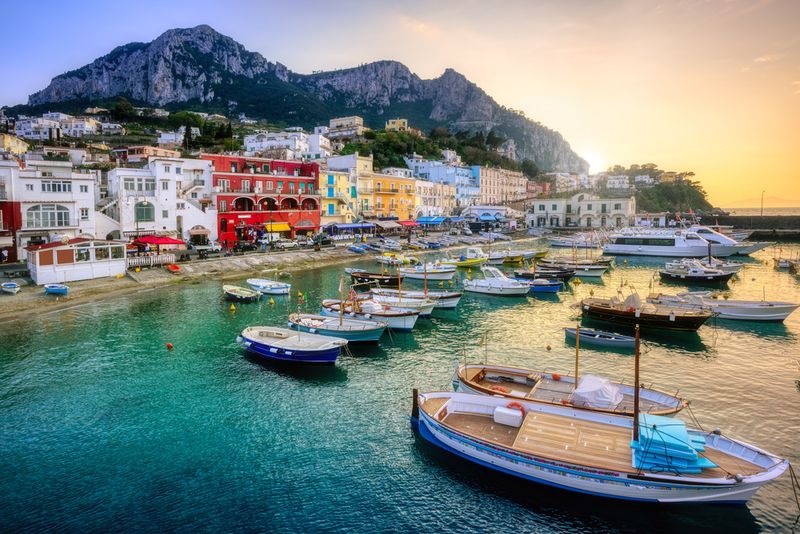In a world that evolves at the speed of light, some rules remain firmly rooted in the past. These are the rules that make you scratch your head and wonder why they still exist. From the downright bizarre to the hilariously outdated, these 17 ridiculous rules are still being followed, even though their purpose has long been forgotten. Let’s explore these quirky traditions and the peculiar reasons why they persist.
1. Royal Permission to Marry
Picture this: You’re in love and ready to tie the knot, but wait! In the UK, if you’re a royal or in line to the throne, you need the monarch’s permission. This rule hails from a time when royal alliances were more about politics than passion. The tradition lingers, reminding royals that love is lovely, but duty reigns supreme. For young lovebirds with royal blood, a ring isn’t enough. They need a nod from the crown. Though times have changed, this rule sticks like a regal relic from yesteryears.
2. No Ice Cream on Sundays
Ice cream, the universal symbol of joy, has its restrictions too. In parts of the USA, particularly in Ohio, selling ice cream on Sundays is frowned upon. This law dates back to a time when Sundays were for church, rest, and reflection, not for indulgence. While modern life allows for flexibility, this law remains as a curious reminder of stricter times. Imagine the frustration of craving a sundae on a lazy Sunday, only to be thwarted by a rule as old as the hills.
3. Piano Playing Prohibition
Music can be the soul’s greatest friend, yet in 19th century Germany, playing the piano past midnight was strictly forbidden. The idea was to maintain peace and tranquility during the sleeping hours.
Though the rule intended to keep nocturnal noise at bay, it now serves as an amusing relic of bygone times. Today, neighbors may still raise an eyebrow at late-night melodies, but it’s not likely to prompt a legal battle. A whimsical nod to an era when silence was golden.
4. No Swearing in Public
Words have power, and in Australia, swearing in public could land you in hot water. This rule is about maintaining public decorum, harking back to more genteel times. While society has grown more accepting of colorful language, the law stands as a gentle reminder to mind your manners. Imagine the sudden hush as an officer approaches, prompting a hurried switch from expletives to exclamations of surprise. It’s a quirky nod to a more polite past, where words were chosen with care.
5. No Chewing Gum in Singapore
Chewing gum might seem harmless, but in Singapore, it’s a sticky subject. Introduced in 1992, this rule aims to keep the city spotless and free of unsightly gum residue. Visitors are often taken aback by the strict enforcement, yet locals appreciate the cleanliness it ensures. Picture a city where sidewalks gleam and public spaces remain pristine, all thanks to this peculiar prohibition. It’s a testament to Singapore’s commitment to order and cleanliness, even if it means sacrificing a simple pleasure.
6. No Walking Backwards After Dark
In Devon, UK, there’s a peculiar law against walking backwards after dark. This curious rule arose from fear of witchcraft and superstitions in centuries past. Imagine the caution of villagers avoiding backward steps as dusk falls, eyes wide with apprehension. Today, it might spark chuckles rather than fear, yet the rule harks back to a time when shadows and superstitions held sway. It’s a delightful reminder of how far we’ve come, even as we chuckle at the strange beliefs of eras gone by.
7. No Public Display of Fish
In Italy’s Capri, displaying fish publicly is strictly forbidden. This rule, originating from concerns over hygiene and public odor, remains in place today. Picture the bustling markets, vibrant with colors, yet mysteriously fish-free, as vendors discreetly tuck their catch away. While the rule seems unusual, it speaks to a commitment to keeping public spaces pleasant and olfactory-friendly. For those visiting Capri, it’s a quirky custom that adds to the charm of this Mediterranean paradise.
8. No Carrying Ice Cream in Back Pocket
In Kentucky, USA, carrying an ice cream cone in your back pocket is a no-go. This quirky law stems from a bygone era when sneaky horse thieves would lure horses away with the sweet treat. Picture the scene: a cheeky thief strolling nonchalantly, ice cream in pocket, horse following behind. Though the days of horse thievery are long past, the rule endures as a relic of more mischievous times. It’s a charming reminder of creative criminal antics, still amusing in today’s world.
9. No Wearing Armor in Parliament
The UK House of Commons has a rule against wearing armor, dating back to medieval times when knights were common visitors. Imagine the clanking chaos of armored debates, prompting this practical regulation. Today, it stands as an amusing reminder of a time when political discussions might have needed more than sharp words. While no modern politician would dream of donning a suit of armor, the rule persists, adding a touch of historical whimsy to the halls of governance.
10. No Flushing After 10 PM
In Switzerland, flushing the toilet after 10 PM in apartment buildings is discouraged to avoid disturbing neighbors. This rule highlights the Swiss commitment to peace and courtesy, even in the most private moments. Picture the quiet tension as residents tiptoe around late-night bathroom visits, mindful of the gentle snores next door. Though unusual, the rule reflects a culture deeply rooted in consideration, where even the mundane act of flushing is timed for politeness.
11. No High Heels in Ancient Sites
In Greece, high heels are banned at ancient sites to protect the fragile monuments. Picture the grandeur of ancient ruins, where time-worn stones whisper secrets of the past. To preserve these treasures, visitors must tread carefully, leaving stilettos at the gate. This rule ensures that the weight of modern fashion doesn’t harm the echoes of history etched in stone. It’s a thoughtful balance of past and present, where fashion bows to heritage in a dance as old as the ruins themselves.
12. No Frowning in Milan
Milan, Italy, boasts a rule that obliges citizens to smile at all times, except during funerals and hospital visits. This cheerful law reflects the city’s vibrant spirit, encouraging positivity even in dampened moods. Picture the bustling streets filled with grins, as locals and tourists alike navigate life’s ups and downs with a smile. Though it’s rarely enforced, the law adds a whimsical note to the Milanese joie de vivre. It’s a playful reminder that sometimes, a smile can indeed change everything.
13. No Spitting on Beaches
In Spain, maintaining cleanliness on beaches is taken seriously, with a rule against spitting. Visualize the golden shores, where sunbathers and swimmers bask in the pristine environment, free from unsightly habits. This rule underscores a commitment to preserving the natural beauty that draws visitors from around the world. While it may seem excessive, the prohibition ensures that the seaside experience remains pleasant for all. As the waves lap the shore, they echo the universal desire for cleanliness and respect.
14. No Flying Kites
In Victoria, Australia, flying kites in public spaces is restricted as it may annoy others. Picture a sunny day, with families gathering in parks, only to find their kites grounded by this unusual rule. Originating from a time when leisure activities were carefully managed, it highlights a balance between fun and respect for communal spaces. While modern interpretations often relax the rule, it stands as a curious nod to a period when kites posed more than just a playful breeze.
15. No Humming on Public Transport
In Tokyo, Japan, humming on public transport is frowned upon to maintain a serene commute. Imagine the bustling trains, where silence is golden, and the gentle hum of travelers’ thoughts fills the air. This rule emphasizes respect for personal space and the shared journey, promoting tranquility amidst the urban rush. Although it might seem overly strict, the prohibition reflects a culture where public harmony takes precedence. It’s a harmonious reminder of the peace found in shared silence.
16. No Sleeping on Benches
In France, sleeping on public benches is banned to maintain the aesthetics and function of urban spaces. Picture the elegant streets where benches invite a brief respite but not a slumber. This rule reflects a dedication to keeping public areas tidy and available for all. While it may seem harsh, it ensures that the charm of French cities remains undisturbed. As travelers pause to admire the surroundings, they find resting spots that are welcoming yet orderly, preserving the allure of France’s urban landscapes.
















